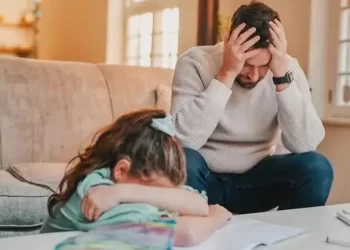If you or someone you know may be struggling with suicidal thoughts, you can call the U.S. National Suicide Prevention Lifeline at 800-273-TALK (8255) any time day or night, or chat online.
Ben Price always was the biggest presence in any room. Loud and funny, his smile was captivating, said his wife, Jennifer.
The couple owned a small business and two farms in an Illinois suburb west of Chicago, where they lived with their two teenage children. She said her husband was the hardest working man she had ever met.
“He was the epitome of unconditional love and loved his kids with all his heart,” she said.
Price tells herself it wasn’t her husband who died by suicide on one of their farms the morning of Feb. 28. She believes he was taken over by what some health care professionals call “COVID psychosis.” The thought keeps the grief from swallowing her whole.
“It was shocking and devastating and so completely out of his character,” she said.
Neurological and psychiatric experts are seeing more reports of COVID-19 sufferers developing psychotic symptoms, even when they have no prior history of mental illness. While rare, the condition can be severe enough to require hospitalization.
Symptoms may include hallucinations, unusual agitation, restlessness preoccupation, paranoid beliefs, decreased need for sleep and impulsive behavior, said Dr. Jonathan Alpert, a professor of…



























































